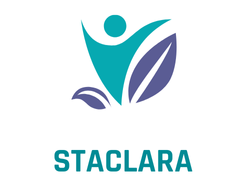Navigating dietary restrictions can be challenging, especially for those who are lactose intolerant. However, maintaining adequate calcium intake is essential for bone health. This guide explores the top non-dairy calcium alternatives available in the UK, from fortified plant-based milks to nutrient-rich vegetables. Whether you seek to enrich your diet or find suitable replacements for traditional dairy products, these options provide a delicious and nutritious way to meet your calcium needs without discomfort. Discover how to enjoy a balanced diet while accommodating your lactose intolerance.
Introduction to Non-Dairy Calcium Alternatives
In the UK, lactose intolerance affects a significant portion of the population, making it vital to explore non-dairy calcium sources. Calcium is essential for maintaining strong bones and teeth, and it plays a crucial role in muscle function and nerve signaling. For those who cannot consume dairy, finding suitable calcium alternatives is of utmost importance.
Have you seen this : Unlocking Wellness: The Asthma-Relief Benefits of Weekly Swimming for Children in the UK
Fortunately, there are numerous non-dairy options available that can help meet daily calcium needs. Leafy greens like kale and spinach are excellent sources, as are fortified plant-based milks such as almond, soy, and oat. Additionally, tofu and certain nuts and seeds, like almonds and chia seeds, provide substantial amounts of calcium. By incorporating these alternatives into your diet, you can ensure adequate calcium intake without relying on dairy products.
Top Non-Dairy Calcium Sources
Exploring plant-based calcium options can be a rewarding journey for those seeking to maintain their calcium intake without dairy. Here, we delve into the best non-dairy calcium sources available in the UK, highlighting their nutritional profiles and comparing them to traditional dairy sources.
Also to see : Effective Strategies for UK Parents to Tackle Picky Eating: A Guide to Fostering Healthy Eating Habits
Leafy Greens and Vegetables
Leafy greens such as kale, broccoli, and bok choy are not only rich in calcium but also packed with other essential nutrients. For instance, a serving of cooked kale provides approximately 177 mg of calcium, making it a robust addition to any diet. These vegetables often contain vitamin K, which aids in bone health, offering a comprehensive nutritional package.
Fortified Plant-Based Milks
Fortified plant-based milks like almond, soy, and oat milk are designed to mimic the calcium content found in cow's milk. Typically, a cup of fortified almond milk contains around 300 mg of calcium, similar to that of dairy milk. These milks are often enriched with vitamins D and B12, enhancing their nutritional value.
Tofu and Tempeh
Tofu and tempeh are excellent sources of plant-based calcium, especially when prepared with calcium sulfate. A half-cup serving of tofu can offer up to 861 mg of calcium, surpassing the calcium content in a similar serving of cow's milk. These soy products also provide a good amount of protein, making them a versatile addition to meals.
Nuts and Seeds
Nuts and seeds, particularly almonds and chia seeds, are compact powerhouses of calcium. For example, an ounce of almonds contains about 76 mg of calcium. Chia seeds, on the other hand, boast approximately 179 mg of calcium per ounce, along with omega-3 fatty acids and fiber, contributing to overall health.
By incorporating these calcium-rich foods into your daily diet, you can achieve the necessary calcium intake while enjoying a variety of flavours and textures. These non-dairy options not only provide comparable calcium levels to dairy but often come with additional health benefits.
Nutritional Information
Understanding the nutritional data of non-dairy calcium sources is crucial for meeting dietary requirements. This section provides an in-depth look at the calcium content in plant-based options and how they compare to traditional dairy.
Nutritional Values of Non-Dairy Options
Non-dairy sources offer a variety of nutritional benefits beyond just calcium. For instance, fortified plant-based milks like almond and soy not only provide calcium but also come enriched with essential vitamins such as D and B12. Leafy greens like kale and broccoli contribute additional nutrients like vitamin K, which is vital for bone health. Tofu and tempeh, known for their high calcium content, also offer a substantial amount of protein, making them excellent dietary choices.
Recommended Daily Calcium Intake
The recommended daily calcium intake varies by age and lifestyle. Adults typically require about 700 mg per day, while teenagers and pregnant women may need more. Incorporating diverse non-dairy calcium sources can help meet these requirements effectively. For example, a serving of fortified plant-based milk can provide nearly half of the daily calcium needs, making it an efficient option for those avoiding dairy.
How Plant-Based Calcium Compares to Dairy
When comparing plant-based calcium to dairy, it is important to consider bioavailability and absorption rates. While dairy products have a high absorption rate, certain plant-based sources, like fortified milks and tofu prepared with calcium sulfate, offer comparable calcium levels. However, the presence of oxalates in some leafy greens can inhibit calcium absorption. Despite this, a varied diet rich in non-dairy options can ensure adequate calcium intake, supporting bone health and overall well-being.
Product Recommendations
Navigating the world of non-dairy calcium products can be quite the adventure, especially in the UK where there are numerous options available. For those seeking alternatives to traditional dairy, several calcium-fortified foods and beverages stand out.
Fortified Plant-Based Milks: Brands like Alpro and Oatly offer a range of fortified plant-based milks, including almond, soy, and oat varieties. These milks are enriched with calcium and often contain other essential vitamins, making them a popular choice for those looking to maintain their calcium intake without dairy.
Calcium-Fortified Juices: Some brands, like Tropicana, offer orange juices fortified with calcium. These beverages provide a refreshing way to boost calcium intake while enjoying the benefits of vitamin C.
Reputable Calcium Supplements: For individuals who find it challenging to meet their calcium needs through diet alone, supplements can be a viable option. Brands such as Vitabiotics and Nature's Best offer calcium supplements specifically designed for lactose-intolerant individuals. These supplements often come in various forms, such as tablets or chewables, catering to different preferences.
When selecting non-dairy calcium products, it's important to consider personal dietary needs and preferences. By incorporating a mix of fortified foods and supplements, individuals can effectively manage their calcium intake and support their overall health.
Preparation Tips and Recipes
Exploring non-dairy recipes can be both exciting and rewarding, especially when focusing on calcium-rich meals. Whether you're lactose-intolerant or simply exploring plant-based options, incorporating non-dairy calcium sources into your meals can be straightforward and delicious.
Incorporating Non-Dairy Calcium into Meals
To seamlessly integrate calcium sources into your diet, start by enhancing everyday recipes with calcium-rich ingredients. For example, add a handful of almonds or chia seeds to your morning smoothie or oatmeal. These additions not only boost calcium intake but also add texture and flavour. Stirring in cooked kale or broccoli into pasta dishes or salads is another simple way to increase your calcium consumption. Additionally, using fortified plant-based milks in recipes like soups or sauces can enhance their nutritional profile without altering taste.
Easy Recipes for Calcium-Rich Dishes
Creating calcium-rich meals doesn't have to be complicated. Consider trying a tofu stir-fry, where tofu serves as a protein and calcium powerhouse. Combine it with a variety of vegetables like bok choy and broccoli, and season with soy sauce and ginger for a flavourful dish. Another simple recipe is a chia seed pudding; mix chia seeds with fortified almond milk, let it sit overnight, and top with fruits and nuts for a nutritious breakfast or dessert. These recipes are not only easy to prepare but also ensure you're meeting your calcium needs.
Meal Prep Tips for Lactose-Intolerant Individuals
For those who are lactose-intolerant, meal prepping can be a game-changer. Start by planning meals around non-dairy calcium sources such as leafy greens, nuts, and fortified milks. Batch-cook dishes like vegetable casseroles or quinoa salads with added tofu or tempeh, which can be stored and enjoyed throughout the week. To save time, pre-measure ingredients like chia seeds and almonds for quick additions to snacks and meals. By preparing in advance, you can ensure a balanced diet rich in calcium, without the hassle of daily cooking.
Health Benefits of Non-Dairy Calcium
Understanding the health benefits of calcium is crucial for maintaining overall well-being. Calcium is not only essential for bone health but also plays a vital role in muscle function, nerve transmission, and blood clotting. Adequate calcium intake can reduce the risk of osteoporosis and fractures, especially as we age.
Advantages of Non-Dairy Calcium Sources
For those with lactose intolerance, non-dairy calcium sources offer significant benefits. These alternatives are often easier to digest and less likely to cause gastrointestinal discomfort. Moreover, non-dairy options like leafy greens and fortified plant-based milks come with additional nutrients such as vitamins K and D, which further support bone health and enhance calcium absorption.
Myths and Misconceptions
A common myth is that non-dairy calcium sources are less effective due to absorption issues. While it's true that some plant-based foods contain oxalates and phytates that can inhibit calcium absorption, many non-dairy sources, like fortified milks and tofu, are designed to maximize bioavailability. By incorporating a variety of these foods into your diet, you can ensure sufficient calcium intake without relying on dairy products.
Regional Availability in the UK
Exploring non-dairy products in the UK can be a delightful journey, especially when you know where to look. Understanding the local availability of these products is crucial for maintaining a balanced diet.
Where to Find Non-Dairy Calcium Sources
In the UK, non-dairy calcium sources are widely accessible. Most major supermarkets, such as Tesco and Sainsbury's, stock a variety of options including fortified plant-based milks, leafy greens, and nuts. These stores often have dedicated sections for plant-based products, making it easier for shoppers to find what they need. Additionally, local farmers' markets can be a treasure trove for fresh, seasonal vegetables rich in calcium.
Best Supermarkets and Health Stores
For those looking for a more specialised selection, health food stores like Holland & Barrett and Planet Organic offer an extensive range of non-dairy products. These stores typically carry unique items such as calcium-fortified juices and a variety of tofu and tempeh options. Health stores often provide organic and sustainably sourced products, appealing to environmentally conscious consumers.
Online Shopping Options
Online platforms have made accessing non-dairy calcium products even more convenient. Websites like Ocado and Amazon offer a wide range of non-dairy alternatives, often with the option for home delivery. These platforms allow you to compare products and read reviews, ensuring you make informed choices. Subscription services, such as Abel & Cole, deliver fresh produce and plant-based products directly to your door, providing another layer of convenience for those seeking non-dairy options.
Conclusion and Additional Resources
Navigating the world of non-dairy calcium sources offers a myriad of benefits, especially for those managing lactose intolerance. The journey to maintaining adequate calcium intake without dairy can be both rewarding and health-enhancing. By incorporating a variety of calcium-rich foods such as fortified plant-based milks, leafy greens, and nuts into your diet, you can achieve optimal bone health and overall well-being.
For those seeking further guidance, numerous dietary guides provide valuable insights into managing lactose intolerance. These resources often include meal plans, shopping tips, and recipes tailored to ensure a balanced intake of essential nutrients. Additionally, connecting with organizations focused on dietary health can offer support and up-to-date information on calcium resources.
To deepen your understanding, consider exploring studies and publications from reputable sources. These can provide evidence-based insights into the bioavailability of plant-based calcium and the broader implications of lactose intolerance. Engaging with such resources empowers individuals to make informed dietary choices, fostering a healthier lifestyle.











